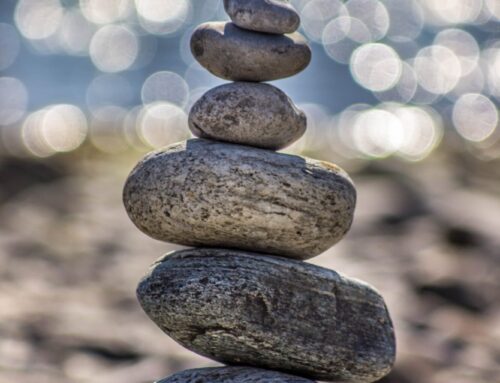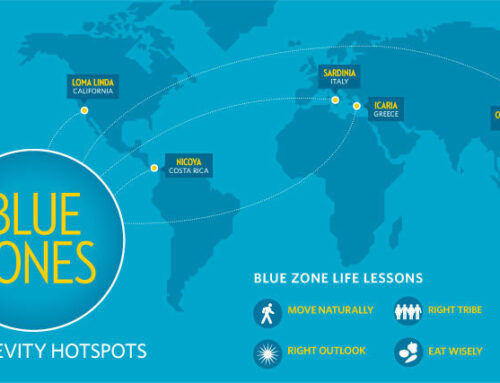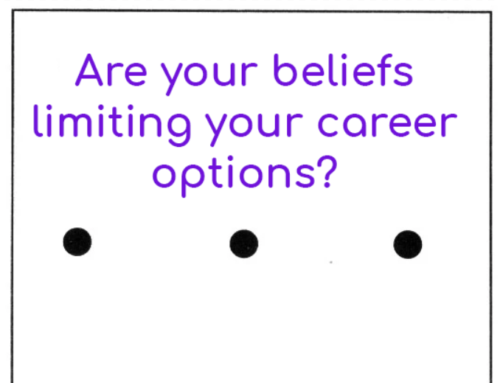Would you like 2019 to be the year where you feel less stressed and overwhelmed, and instead experience the feelings of being in control and having productive momentum?
The feeling of completing something is a psychological thrill, and there’s nothing I love more than the clear and calm space in my mind, once I’ve ticked off all the things on my to do list.
My Danish background means I’ve grown up with the virtues of efficiency and productivity, but over the past couple of years I’ve worked hard at improving these skills in a way that embraces technology and fits with my present lifestyle.
If productivity and attention management (= the new time management) don’t come naturally to you – don’t worry, these are skills you can absolutely learn, and I’ll show you how.
Below are my personal top 15 tips and habits to introduce in your life, but first I’ll share with you a major realization that helped me understand why I often got distracted and out of sync when working.
In any knowledge job, you’re really playing 2 roles simultaneously – the boss and the worker. Meaning you have to decide what your work is, and you have to do the work. Completing these types of work requires different types of brain processing, so the better you get at splitting them up, the more time you save, and the more in sync you’ll feel.
In other words, take the thinking seriously, and separate it from the doing.
This links in perfectly with my first habit, which is probably the one that has made the biggest difference to my working life:
1. Plan your day the night before
Every evening I plan the next day. Not only does it help me disconnect from the work of the day, but during night my brain is able to process and reboot.
Most importantly, the next day I’m ready from the onset – I can spend the early morning hours on actually doing the work that requires most of my attention, rather than wasting that time thinking about what work I should do, and then getting out of sync because I have to also DO the work.
2. Adopt the 1–3–5 method to create and manage your daily to do list
Every evening I assume that I can accomplish 1 big thing, 3 medium things and 5 small things the next day. Of course this can be flexible depending on factors like workload, type of tasks etc. On top of this, I have all the unexpected tasks to do that day.
I use Evernote and have 2 lists – a Master to do list and a Daily to do list. In the evening I pick a big thing to do for next day from the Master list, as well as some of the medium and small things. I also look at the big things ahead, and rotate them forward or backward depending on how the urgency has changed from the previous day.
I don’t distract myself by looking at the Master to do list during the day, only once in the evening. Lastly, I do the big thing when my attention is at its’ peak, which for me is mid-mornings, once I’ve spent no more than 30 minutes checking my emails.
3. Eat the frog first
For when there’s this thing I just don’t want to do, I schedule it 1st thing in the morning, even before checking my emails. Once it’s out of the way, I feel proud and like I’ve accomplished something worthwhile, giving me an upbeat momentum for the next task.
4. Important over urgent
This is another great mindset habit to adopt. In the evening when you’re planning your day and week ahead, schedule things that are important, ahead of things that are urgent. It might seem counterintuitive, but if you always do urgent but not important things, you’ll move towards big goals, that have the ability to make a massive positive difference in your life, at a snail’s pace.
Urgent tasks are usually not as urgent as your instinct tells you, and the nagging feeling that something is urgent distracts you and wrecks your productivity.
Learn to separate important tasks from urgent ones, by watching what happens to your mind when a new task suddenly falls on your plate.
If the task has been passed on from other people, don’t be afraid to ask them directly how urgent this actually is.
5. Make use of The Compound Effect
Is there any big goal (learning a new language or becoming an expert on a topic) that excites you, but you’ve almost given up hope of ever getting around to doing?
Spend 1 hour a day dedicated to this, time that you would have otherwise wasted commuting, sleeping or just procrastinating.
I did this successfully when I learned Hindi a few years ago, and now, being a Coach, I’m dedicating myself to continuous self-improvement.
What works for me is a mixture of reading books early mornings, before I check my emails, and always having 1-2 audio books on my phone for when I’m commuting.1 hour a day adds up quicker than you think.
6. The 2 minute rule
I use this especially for emails, but you can also apply it to ad hoc work that comes in. Anything that suddenly needs to be done and you decide can probably be completed in less than 2 minutes should be done straight away, instead of adding it to your to do list. Factoring in the time and distraction spent writing a reminder, reading it and remembering the details, you’re better off getting it done immediately.
7. The wording of to do lists
The words we choose for our to do lists matter – unless you can easily picture an activity, it’s not really an action. Be specific and avoid wasting your attention when reading the action, by including verb, object and subject – WHO has to do WHAT exactly. This creates momentum and really benefits you when you’re in work mode.
“The mind is for having ideas – not for holding them” – David Allen

8. Stop multi-tasking
Focus on one thing at a time – when you constantly switch between tasks you waste mental capacity and aren’t able to produce your best work, as you end up not going deep with any of the work.
9. Minimise virtual distractions
Choose a few times a day where you check your emails. I check mine early mornings, at lunchtime and early evening. We’re social creatures, and the notifications of new emails and messages is often too much to resist. So switch them off if at all possible. I have kept all notifications on my phone to an absolutely minimum, and my phone is always on silent.
Remember: Your inbox is just a place where emails land, it is NOT your to do list.
10. Embrace technology
I’m not saying you should always follow the latest fad, but when I finally got around to replace post-its and notebook with an app (Evernote in my case), which syncs across my laptop and mobile, it was a revelation.
Even if technology scares you a bit, be open to learn, as the time and stress it saves you due to misplacement and chaos of physical documents is huge.
11. Organise your working space
Keep your desk as empty as possibly. I stopped using post-its a long time ago, and the only things I keep on my table is a pen, paper, tissues, hand cream and lip balm. Everything else is a visual distraction.
12. Renegotiating your daily to do list
Even with the best intentions, stuff gets in the way. I’m all for scheduling things in advance, but I have also adopted a mindset that I expect things to get in the way and disrupt my flow. That’s why I schedule in more time for everything than I think I need, and I also revisit my to do list twice daily (lunch time and at about 4 pm), in order to make changes to reflect what I can realistically get done that day without feeling stressed.
13. Choose your friends wisely
You might think this one isn’t related to productivity, but to me, it absolutely is. Some people fill me with inspiration and a feeling of ‘anything is possible’, while others drain the heck out of me. Read my article How to make the influence of friends your secret to success, if you’d like to learn more about how you can improve this area of your life.
14. Meditate
After years of trying I had almost convinced myself that I couldn’t meditate, until I realised I was vastly overthinking it. I now spend 5 min in the morning (after reading and before checking emails) where I just sit and focus on my breathing. Eyes closed doesn’t work for me, so I focus on a picture of a rose. While doing this all kinds of thoughts come to me, and I spend the time flicking away those thoughts, focusing on the present moment. This really works and gets me calm, focused and excited to get started on my to do list. Meditation, or mindfulness, is one of the best new habits I have introduced in my life.
Mindfulness also means being aware of your reactions to events throughout the day, and knowing when you are generally at peak attention.
Getting to know myself like this means I have gotten better at scheduling the right kind of tasks (lots or little attention required) for the right times of the day and week.
15. Lower your expectations
Accept that there’s always more work to be done, no matter what you do.
The sooner you can forget about being perfect, the sooner you’ll feel calm, collected and happy with yourself.
I hope I have given you some inspiration to become more productive in 2019. If you’d like to learn more, I can warmly recommend the book Productivity Ninja, that has inspired several of my productivity habits.
By introducing some of these, you’ll not only get more stuff done, but you’ll feel playful and proud, especially as you’ll get the important, life changing tasks done too.
Checking in with yourself and noticing how you’re getting on with the new habits is key, which is why I can’t sing high enough praises for adding more mindfulness to your life.
PS: I’d love to know what productivity habits have worked for you? Please share them below 🙂







Leave A Comment